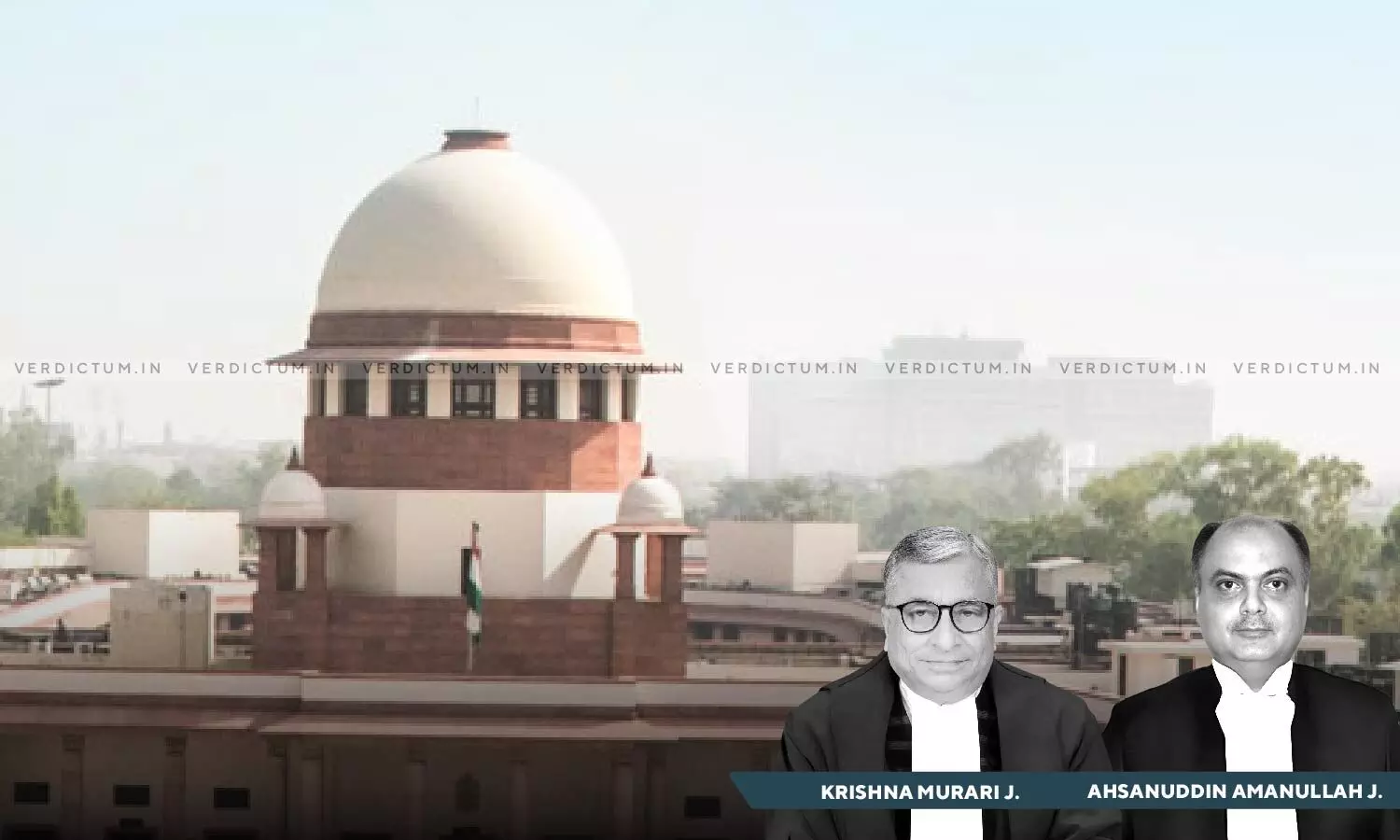
Essential For Courts To Be Extremely Cautious While Passing Adverse Remarks Against Parties Involved Without Proper Justification- SC
 |
|The Supreme Court while allowing a batch of appeals has observed that the Courts must be extremely cautious while passing adverse remarks against the parties involved, and must do so with proper justification, in the right forum, and only if it is necessary to meet the ends of justice.
The Court in this matter said that the actions of the Karnataka High Court during the bail proceedings of a third party are manifestly arbitrary and unjust and that it must have confined itself to the issues relevant to it for the purposes of deciding the bail.
The two-Judge Bench of Justice Krishna Murari and Justice Ahsanuddin Amanullah asserted, “This never before seen transparency in the judicial system, while it brings with it great benefits, it also attaches with it a stricter standard of responsibility on judges while conducting such court proceedings. Remarks passed in court, due to the live broadcasting of court proceedings, now have ramifications that are far reaching, and as can be seen in the present case, can cause great injury to the reputation of the parties involved. In such a circumstance, it is essential for the courts to be extremely cautious while passing adverse remarks against the parties involved, and must do so with proper justification, in the right forum, and only if it is necessary to meet the ends of justice.”
The Bench said that the legal system in general, and the judicial system in particular, has ushered into a new age of accessibility and transparency due to the adoption of virtual hearings and live telecasting of open court proceedings and such changes in the judiciary have ensured that the courts as redressal mechanisms have become more accessible to the common man than ever before.
Senior Advocates Ranjit Kumar and Amit Kumar represented the appellants while ASG K.M. Nataraj and Advocate Sharath Nambiar represented the respondents.
Brief Facts –
A Single Judge of the Karnataka High Court had made adverse remarks against the appellants and a direction was issued to the CBI mandating them to investigate the past records of one of the appellants. During the pendency of bail proceedings, a police officer was alleged to have taken a bribe and the High Court made adverse remarks against the appellants who had no connection with the said proceedings.
Such remarks made by the Judge were widely reported in the media which caused injury to the reputation of the appellants. The appellants being aggrieved with the same sought for the remarks made by the Judge against them to be expunged. The following two questions arose before the Supreme Court:
1. Whether the adverse remarks made by the High Court against the appellants during the bail proceedings of respondent No. 1 is liable to be expunged?
2. Whether the direction issued by the High Court to seek reports against Appellant No.2 during the bail proceedings of respondent no.1 liable to be set aside?
The Apex Court while dealing with the first question noted, “In the bail proceedings of Respondent No.1, because the Appellant No.3 was not a party, he did not have the opportunity to place his submissions on record for the court to peruse the same. No specific allegations against Appellant No.3 were made before the High Court, since the bail proceedings, and the submissions of the counsels in furtherance of the said bail proceedings, were only limited to Respondent No.1.”
The Court further said that it was a gross abuse of the process of law to pass such adverse remarks against the appellants, as such remarks do not just cause injury to their reputation, but also have the potential to cause great prejudice to their actual trial.
While considering the second question, the Court observed, “A court of bail, especially in cases where the bail is sought for by a third party, is not a court that has all the relevant information to pass an order on the merits of an unconnected party, and such an order, if passed, has the potential to cause great harm to the said party without them being afforded an actual and meaningful opportunity to defend themselves.”
The Court further asserted that any party, when being accused of an illegal act, must be given an opportunity to be fairly heard.
“The limitations of physical infrastructure, that has constrained the courts to a physical location, has often been cited as one of the main roadblocks in the path towards access to justice. This roadblock, however, has now been cleared due to the availability of technology and the adoption of the same”, noted the Court.
The Court, therefore, requested the High Court to expeditiously conclude the bail proceedings in accordance with the law on its own merits without being prejudiced or influenced by its judgment.
Accordingly, the Court expunged the adverse remarks of the High Court and quashed the interim order.
Cause Title- Seemant Kumar Singh v. Mahesh PS & Ors.